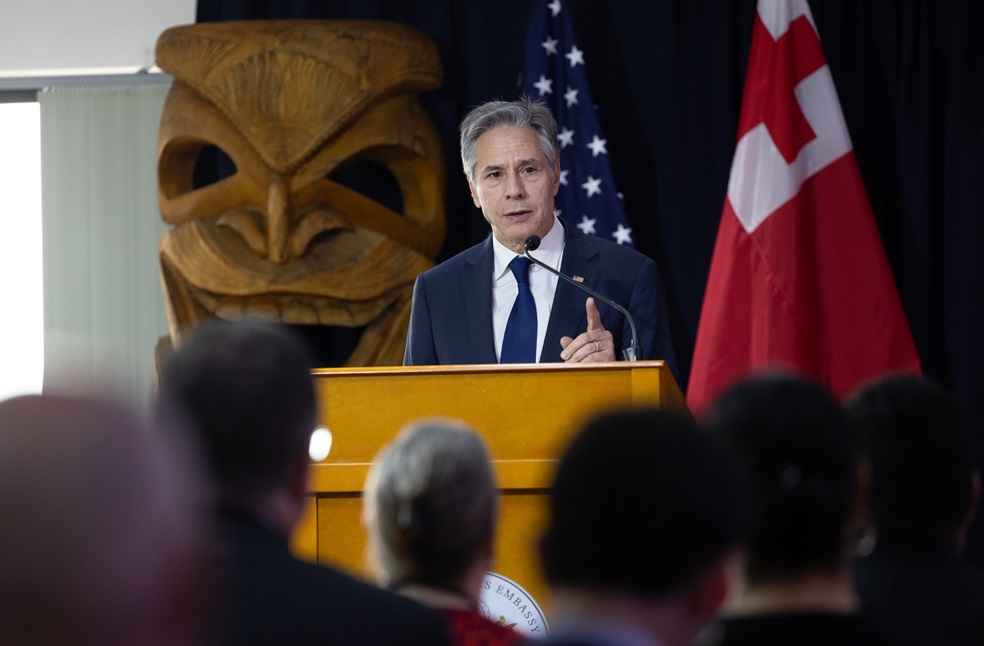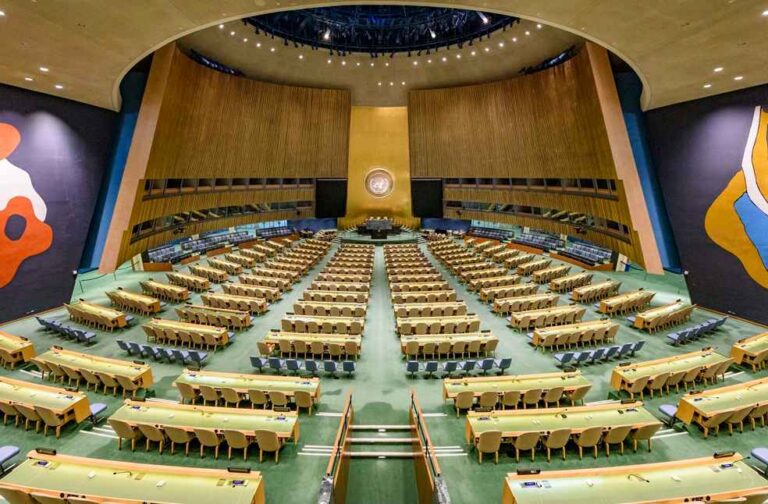New York: The United Nations Security Council (UNSC) is expected to vote soon on a United States-drafted resolution calling for an immediate ceasefire in Gaza. Also, the European Union called for a ‘humanitarian pause,’ pressuring Israel to stop its five-month bombardment of the Palestinian territory.
Due to the growing violence and crucial situations, Washington changed its approach to Israel. Being a most persistent ally, it gradually hardened its tone following its early solid support for Israeli Prime Minister Benjamin Netanyahu and his war in Gaza.
The new draft resolution draws a toughening of Washington’s strategy amid international condemnation of a war that killed 32,000 Palestinians. The United Nations also warned of imminent famine as a result of Israel’s embargo.
According to the draft US text, an “immediate ceasefire” is imperative for the protection of civilians and the delivery of humanitarian aid. Hamas’ attack on Israel in October resulted in the capture of some of the remaining captives. A ceasefire would also rely on the release of those captives. Most recently, the United States vetoed a UN resolution calling for a ceasefire.

Linda Thomas Greenfield, the US ambassador to the UN, said that, “US diplomats had been working on a resolution that would unequivocally support ongoing diplomatic efforts aimed at securing an immediate ceasefire in Gaza as part of a deal which would get hostages released and enable a surge in humanitarian aid.”
The US draft’s language caused some discomfort, and a second resolution was drawn up with stronger language that urged an immediate ceasefire. Among the 15 members of the body, eight non-permanent members support it.
EU leaders meeting in Brussels called for an ‘immediate humanitarian pause leading to a sustainable ceasefire’ in Gaza sparking diplomatic moves at the UN. Their recommendations included the unconditional release of all hostages and the recommendation that Israel refrain from launching a significant ground offensive in Rafah, where more than a million Palestinians sought refuge during the war.

The European Union remarked that, “Such an assault would worsen the already catastrophic humanitarian situation and prevent the urgently needed provision of basic services and humanitarian assistance.”
The call for a ceasefire comes as truce discussions continue in Doha, mediated by the US, Qatar and Egypt. Israeli spy chief David Barnia will travel to Qatar to meet with mediators, Netanyahu’s office noted in a statement.
US Secretary of State Antony Blinken said that, “Negotiators continue to work. The gaps are narrowing, and we’re continuing to push for an agreement in Doha. There’s still difficult work to get there. But I continue to believe it’s possible.”



